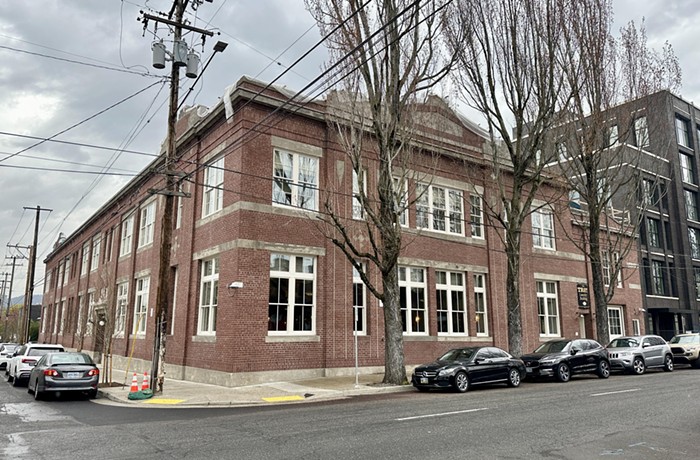
No workplace is perfect. Jobs are not identities, employers are not families, and some days you are going to really fucking hate your job. That’s kind of the whole deal with capitalism, and it’s especially true in an underfunded, overworked industry like journalism.
But as much as a workplace can be perfect, as much as a job can be an identity, and as much as coworkers can be families, I found that at the Mercury over the last three years. There were decidedly fewer days when I really fucking hated my job than what I imagine the norm is. That’s because the Mercury let me be who I was going to be, and let me pursue what I was interested in. They let me spend too long highlighting thick documents when I wanted to, and they let me troll and shitpost when I wanted to. They surrounded me with unpretentious, curious, interesting and interested people—coworkers, sources, freelancers—who inspired me. They laughed at my jokes and mirrored my anger and let me swear as much as I fucking wanted to.
In short, the Mercury was a good place to work. I’m leaving now—today is my last day—and I’m going to what I fully expect will be another good place to work. But it won’t be the Mercury, because the Mercury was my first adult job where I could be myself.
When I started here as a news reporter, I was still so unsure of myself as a journalist and a person, and shocked they’d decided to hire me. I’m not sure I would have succeeded, even here, if it weren't for Alex Zielinski. If you read the Merc, then you already know Alex is a tenacious, empathetic, and hardworking reporter. But what you might not know is that she’s also an incredible teacher, both in direct instruction and editing, and in simply modeling what to do. I didn’t go to grad school, and the college I went to didn’t even have a journalism major. But before COVID-19 hit and we moved to remote work, I got to share an office with Alex for a year and a half, and that was an experience as valuable as any j-school. Oregon journalists: If you ever get the chance to work with Alex in any capacity, take it.
There are too many beats from the last three years to recount them all in full here: A wildly fun first year, then a pandemic, which meant losing a host of mind-bogglingly talented coworkers, our cool downtown office, and our print presence. A historic year of protests that I was so proud and inspired to cover, and also probably should never have been covering from a mental health perspective—after a few months I had to stop, and my coworkers respected that boundary. The last year of post-vaccinated purgatory, days and weeks when I was too paralyzed by anxiety and depression to do much writing I was proud of. Starting antidepressants and finding the words right where I had left them. Welcoming reporter Isabella Garcia to our staff, and watching her cover my old beats with her own perspectives and sticktoitiveness. Becoming arts and culture editor and slowly finding my way in the new role, connecting with freelance writers who continually surprised me with their excellent work. Getting the job offer to be communications manager with Basic Rights Oregon, and knowing I had to take it because it’s an incredible opportunity, but also knowing I’m closing a chapter of my life that can’t be easily reopened.
And through it all, editor-in-chief Wm. Steven Humphrey—or, as we know him, simply Steve—serving as the ultimate empathetic cheerleader. When I wanted to switch focus from news to culture coverage, Steve supported it immediately and found a way to make it happen, and I’ll never stop being appreciative of that.
And while I’m gushing, I need to save some of that gush for you, the readers. Without you, I’d just be screaming at a blank wall. You never know as a writer exactly which pieces will really land—but some of my riskiest and weirdest pieces also turned out to be my most popular, and that’s an incredibly validating phenomenon. Thank you for sometimes taking a leap of faith, clicking on the article, and reading it all the way through. An extra thanks to those of you who found enough value in what we do to share our articles, donate, or even become monthly supporters.
A writer can never stop writing, so you’ll still be hearing from me in some form—on Twitter, if nothing else. But at least for the foreseeable future, you won’t be seeing my byline on Mercury stories anymore. Thanks for reading, Portland.


















